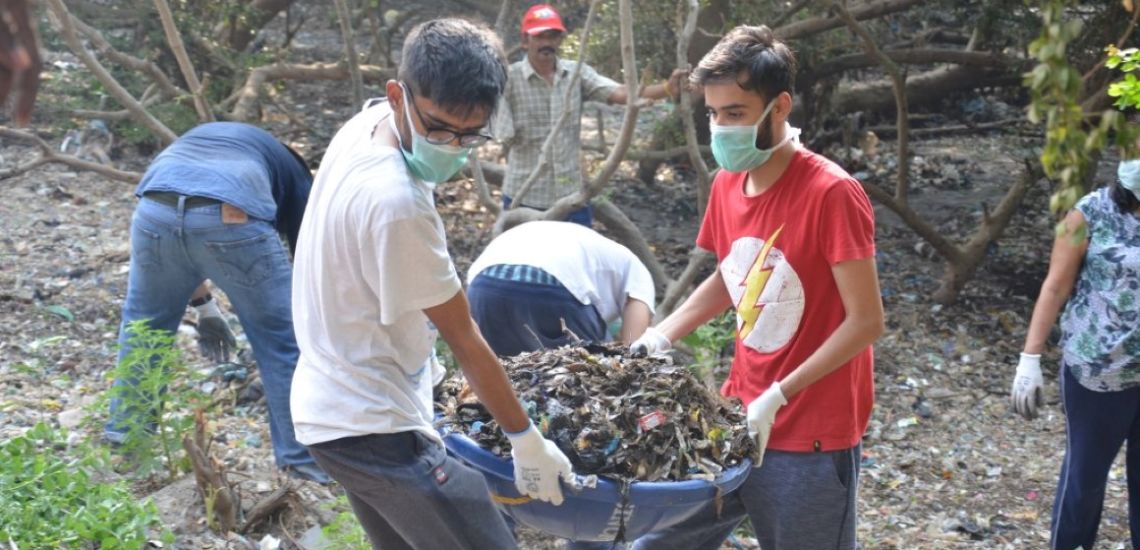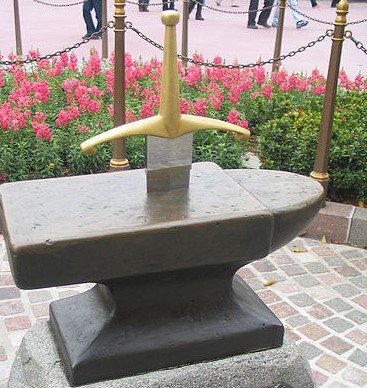Kindfulness: The Need of the Hour
Article By Sangeeta Iyer
 If we look at how human behavior has changed since ancient times, it is fairly obvious that we have become more aggressive as a species; more egoistic, more volatile and easily prone to flare-ups of anger, impatience and unfortunately, violence as well. All around us we can see increasing evidence of self-centeredness and ascending intolerance wreaking havoc across the globe.
If we look at how human behavior has changed since ancient times, it is fairly obvious that we have become more aggressive as a species; more egoistic, more volatile and easily prone to flare-ups of anger, impatience and unfortunately, violence as well. All around us we can see increasing evidence of self-centeredness and ascending intolerance wreaking havoc across the globe.
Why then, when we should be progressing with time, are we regressing into an animalistic state? The easiest excuse is to blame circumstance. “The times are bad,” we say, absolving ourselves of responsibility for the manner in which we choose to act. How many times have we heard people say, “It’s not me, it’s the world! And when times are tough, we need to become tough ourselves to deal with them!”? Or “This is Kali Yuga,” as if it explains, and even excuses, everything. However, as philosophers, we know that this is exactly the opportunity to look at things differently – and more so, we must choose to act differently in order to truly bring about the change we wish to see in the world. To “be the change” as Mahatma Gandhi said; we cannot just wait for it to happen as a miracle. So let us explore the meaning of Kali Yuga a little. How can it be a golden opportunity for us to make a difference, instead of simply submitting to the Dark Age that it’s painted out to be.
Our present time, said to be the Kali Yuga, strikes fear in the hearts of some people because it is associated with a time of turmoil. This yuga is believed to complete the cycle of the four great yugas: Satya Yuga, Treta Yuga, Dwapar Yuga and Kali Yuga. (1) These can perhaps be seen as equivalent to the Golden Age, Silver Age, Bronze Age and Iron Age as defined by Ovid in his Metamorphoses. (2) Assuming this to be true, the Iron Age nomenclature foretells a time of corrosion, and the necessity of effort involved in keeping it rust-free. On a similar note, Kali means darkness, referring to “strife, discord, quarrel or contention.” (1)
While the conjunction and movements of constellations and planets in the cosmos are important influences on the nature of our times, it is also imperative, however, to consider the value of the effort made by individual human beings that can make a difference to the intensity and the duration of this so-called age of darkness. Instead of thinking of it as a reality that we can do nothing about, we could make the effort to enhance the light within ourselves. Dante Alighieri wrote in The Divine Comedy: “You men on earth attribute everything to the spheres…your Free Will…can still surmount all obstacles if nurtured well.”
So how should we go about it and where can we begin? Perhaps we could draw inspiration from one of the wise voices in the world today – that of senior Tibetan Buddhist nun Tenzin Palmo, fondly called Jetsunma, meaning revered lady. In her book Reflections on a Mountain Lake, Tenzin Palmo says in her characteristic no-nonsense way, “In the East, some people blame their spiritual laziness on the fact that this is ‘the dark age.’ What is this dark age? This is where we are. The Divine is still with us and we still have our intelligence and our lifespan, so let us get on with it.” (3)
However turbulent the times may be, the Buddha advocated treating violence with love, anger with compassion and hatred with acceptance. Contrary to popular belief, if we adopt the approach of ‘an eye for an eye’, opposing violence with more violence, we would only end up in a downward spiral that makes the whole world blind. The idea is to embrace, not oppose…to include, not exclude. With dialogue that leads to understanding…with open arms and hearts.
To achieve this, Tenzin Palmo suggests that the starting point is Kindfulness – beginning with ourselves and then radiating that loving kindness onto others. A kind mindfulness as it were, towards everybody – because we are, at the end of the day, One; one life with multiple forms within it, completely interconnected with each other. So the intent is not to condone bad behavior in ourselves or others, but to accept limitations and work with them patiently and kindly. To understand that it is inner turbulence – our fears and insecurities – that reflects outwards in a web of cause and effect. It needs to be addressed at the root – in other words, its cause. A beautiful line from Madame Blavatsky’s Voice of the Silence comes to mind: “Let each burning human tear drop on thy heart and there remain…nor ever brush it off until the pain that caused it is removed.” A surface cure would only provide relief from symptoms but would not address the real cause. And it is important to identify and heal the root cause before it cascades into a downward spiral.
What causes such problems in the first place…where do their seeds lie? Jetsunma suggests that the answer lies in what the Buddha described as the greatest illusion of all: Separation. “The whole problem occurs because we have a very strong sense of ‘I’ and that naturally entails a sense of ‘non-I’ about everyone else… We want to do everything for the benefit of that ‘I’ that we perceive ourselves to be, at the cost of all the ‘non-I’s’. That’s how selfishness is born.” (4) The minute we define ourselves as ‘Me’ rather than ‘We’, we do everything in our power to seek pleasure and avoid pain – for our singular selves. And it is often at the cost of what would be good for someone else.
In her talk Waking up from the Dream of Ignorance she says, “The problem is not that we have thoughts and feelings – that’s natural; the problem is that we identify with our thoughts and feelings…with this false sense of ‘I’” This deluded view takes us to extremes of selfishness and greed and we end up ruining relationships and denuding the Earth in a frenzy of material consumption – which can never truly satisfy us because the gaping hole is actually in our spirit. “We have become like a cancer on the planet,” she says sadly, observing this trend.
Therefore what is important is to be able to open up the heart; first of all, to learn to include others and then to put others first. Marcus Aurelius writes, “What’s good for the beehive is good for the bee.” If only we thought like that more often.
So what do we mean by Kindfulness? And how far does it extend? Jetsunma says that even if there are people whom we consider to be not-so-nice, we can at least be kind to them. “If anyone says that they’re enlightened but they’re not compassionate, they’re not really enlightened. It’s like the two wings of a bird – you have to have both,” she says. The Buddha has also said that we really need to guard our speech – every word we utter needs to be true, kind and helpful. It doesn’t help for it just to be true, because not everyone can handle the truth if it is put bluntly.
However, genuine mindful kindness does not mean ‘being nice at all costs’. Not at all. Often, being truly compassionate means being honest in reflecting what is holding the other person back. It’s like holding up a mirror to show how to take responsibility for their samsaric problems – but doing so compassionately. Because we are truly invested in their growth. If we could all see how our anxieties, our fears, and our separation hold us back, perhaps it might give us a real chance to change ourselves, with the aim of making the world a more just place.
The Dalai Lama says: “The most important thing is to develop a good heart.” Especially in these trying times when people are misusing intelligence for selfish aims and destroying the planet in the bargain. This is exactly when we need to focus on how we are responding to these threats; although we have the instinctive and natural reflex of safeguarding our own interests, do we do so with a lack of regard for others? Are we able to respond as human beings who care for humanity, with the altruistic drive of helping others, if not put them first? The stellar example of Neerja Bhanot comes to mind. At the young age of 22 when she was a purser on a Pan Am flight, she gave her life shielding children against bullets fired by hijackers. She had also saved hundreds of other passengers in the harrowing hours during the hijacking. In recognition of her bravery, Neerja was posthumously awarded the Ashok Chakra, India’s highest peacetime military decoration awarded for valour, courageous action or self-sacrifice. She is also the youngest and the only woman to receive this award. (5)
How is such magnanimity possible, we might wonder. Tenzin Palmo says, “When we reduce our obsession with ourselves, we allow something greater and more magnificent to manifest in our lives…The advantage of a human birth is that we can progress through our problems. Otherwise we’ll get spiritually very flabby! You don’t have to be a high level yogi or geshe to do this.” So what holds us back? Ignorance of who we really are…fear of change…and the laziness to make the effort.
Many spiritual teachers teach us that our suffering is caused by ignorance of our true nature as a soul; our real identity. Plato said, “Man, you are God. But you forgot.” So our real task is to remember what we have forgotten. And if the enemy is forgetfulness, the first arrow that we need to use against it is mindfulness.
The Buddha says: “Mindfulness is like salt in all the curries.” It needs to be present in every action of ours. So perhaps the first step to becoming increasingly conscious is to become able to discern what is essential and what is not. Tenzin Palmo questions our motives when she asks, “We beautify our homes, our cities, our bodies – at great time and effort and expense, but where we really live is in our minds – how much do we spend on beautifying that?”
Wanting to take the easy way out, we procrastinate using our careers and our families and our ailments as excuses, to say, “I can’t practice any of this right now – I have so many things to do!” But being busy is “only a form of laziness,” she says in her typically pithy way. “You take the same mind to the Himalayas…the same heart. So no excuses. No procrastination. Right now.”
Being Kind to Ourselves
The first step is to observe our minds and check whether our thoughts are self-limiting or enabling our growth. Meditation is one of the methods by which we can train ourselves to be more mindful. However, we should be prepared to accept that it won’t instantly be the panacea we are hoping for. In the beginning, it might even be the opposite! While many of us expect meditation to make us calm and peaceful, it often brings up the stuff we have buried away and want to keep hidden – “the great shadow” as Palmo calls it, which can be painful. Perhaps it might help if throughout the day, we can be vigilant and check our thoughts: Was I mindful or distracted? Was I having a generous thought, or a mean one? Because it’s no use if we’re calm and peaceful while meditating, but start yelling at someone the minute we come out of it! We all get upset – not because things are imperfect, but because we are.
Perhaps another cure is to use “sandpaper for the ego”. In Jetsunma’s words, “If we always stroke ourselves with velvet, we’ll feel nice but nothing will change. We need sandpaper which will make our rough edges smooth.” But let’s not just zero in on our wrongs, she advises: “Look at all the good things you’ve done. Pull out the weeds but also water the flowers in the garden of your heart.”
All of this is preparation for bodhicitta; to wake up from the sleep of our ignorance. The main motivation is to make ourselves capable of liberating others, not just to seek nirvana for oneself.
Being Kind to the World Around Us
The Law of Karma, of cause and effect, is based on intention as much as it is based on action. Therefore we need to watch our intentions as well as our actions towards others. Everything we do has a ripple effect on the world around us and comes back to us as karma.
We should ask ourselves: is it really our intention to help others? One way to begin is to “dedicate the merit”, as Tenzin Palmo says, whenever we do something good. “While doing prostrations, imagine all beings doing prostrations with you. We are their representative. Like at the UN – the whole country can’t go to the UN, so we send a representative. So imagine all beings…and share the merit with them.” She says, “Whatever we do that’s virtuous, we should seal it with a dedication. We could say, this merit that I earn, may I dedicate it to all sentient beings for their enlightenment and happiness and well-being.” As an anecdote, she shares an episode about a visitor who came to a nunnery and said to a 7 year old nun, “Isn’t it nice that you’re here? Now you can dedicate your good merit to your parents and family!” And the little girl promptly replied: “No, in this nunnery, we dedicate the merit to all sentient beings, not just our families.”
This is similar to the Buddhist practice of metta-meditation: to radiate loving kindness towards everyone. Begin with yourself, then the people you like, then the people you’re neutral to, and then the people you don’t like, and then the whole universe. Send it love. “Love is the wish that beings should be happy. Compassion is the wish that they should be free of suffering. This is unconditional love – for everyone.” A geshe in Dharamsala shares the value of being able to rejoice when someone else gets something that one wanted for oneself; to celebrate another’s success as part of a fraternity. “Good things are happening to him – how lovely!” There’s no envy. Just pure joy.
“The only thing we take with us is our consciousness and our karma – not a single paisa,” Tenzin Palmo says emphatically. “When we die, we attract to ourselves those beings that are on a similar psychic plane as ourselves. So we will go to a good place if our consciousness is in a good place. Are we dwelling in contentment, peace and love? Or in anger, selfishness and self-pity? Impoverished? Or full with inner wealth? How many pop stars die of an overdose? Well, that doesn’t sound like a wealthy mind!” It is evident that many people are deeply unhappy in spite of having all the physical trappings. All the wars in the world occur because people want more. So there’s no point in accumulating material wealth if we remain empty on the inside. You don’t have to have more, in order to be more.
Jetsunma echoes the Buddha when she says, “Try to keep a cave and forest mind, wherever you are.” We could understand this as a state in which the mind is unattached to physical surroundings. It doesn’t mean you don’t enjoy things, it just means you don’t get so attached to them that you feel incomplete without them. “Appreciate what comes but allow it to go. No sticky wanting! Be like Teflon – nothing sticks to it. Don’t be like Velcro! The problem comes with the clinging mind – that’s what causes suffering,” she avers.
All our bad seeds will come up at some point or the other, but we don’t know in which life. So it doesn’t mean that people in adverse conditions are bad people, and those born in comfortable situations are good people. In this life, these particular seeds have come up as my opportunity to learn something that I have yet to learn. And therefore the important thing is how I respond to them. What seeds am I sowing now, with my conscious response? Surely I can curtail negative emotions like anger by making a conscious effort to transform it into patience and compassion.
Finally, Tenzin Palmo suggests that we prioritize the fraternity and stay loyal to friends. This doesn’t mean that we become naïve or gloss over their faults – instead a true friend might reflect to you your limitations in a compassionate way, to help you grow, to improve and be the best that you have the potential to be. Perhaps this is why the Buddha also emphasized harmony in the sangha, a fraternity bound by kindfulness, in which each individual represents a different note, but together we become an enriching harmony. Might this perhaps be the key to once again illuminate the light, so necessary in the Kali Yuga?
Image Credits: Remi Walle / unsplash / CC BY PD
The entity posting this article assumes the responsibility that images used in this article have the requisite permissionsImage References
Remi Walle / unsplash / CC BY PD
Permissions required for the publishing of this article have been obtained
Article References
(1) Wikipedia contributors. "Kali Yuga." Wikipedia, The Free Encyclopedia. Wikipedia, The Free Encyclopedia, 12 Dec. 2017. Web. 28 Dec. 2017. (2) Wikipedia contributors. "Ages of Man." Wikipedia, The Free Encyclopedia. Wikipedia, The Free Encyclopedia, 18 Nov. 2017. Web. 28 Dec. 2017. (3) Palmo, Tenzin. ‘Reflections on a Mountain Lake.’ Shambala Publications. (2003). (4) Palmo, Tenzin. Seminar on The Teachings of Atisha, held by Dharma Rain Centre at Lotus Lounge, Mumbai on 31st January & 1st February 2017. (5) Wikipedia contributors. "Neerja Bhanot." Wikipedia, The Free Encyclopedia. Wikipedia, The Free Encyclopedia, 23 Dec. 2017. Web. 28 Dec. 2017.




What do you think?